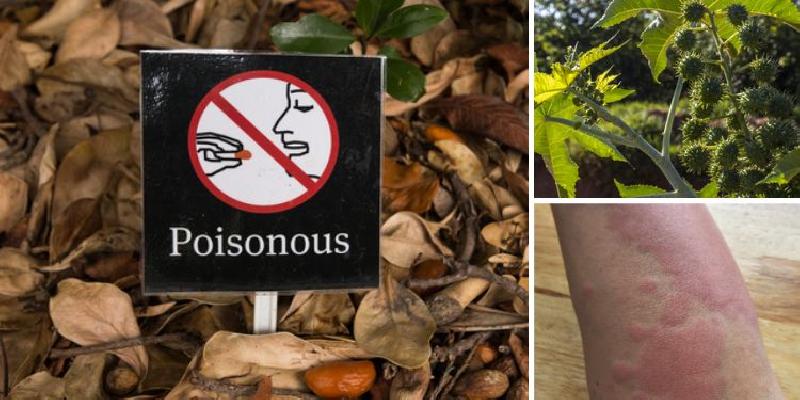Do you want to know a secret? There is a high probability that you have a plant growing in your yard that has a lot of health and survival benefits, and you probably don’t even know about it. Heck, even if it’s not growing in your yard, it’s almost certainly growing in your neighbor’s yard or in a random sidewalk crack. The plant we’re talking about is the dandelion.
Yes, dandelions. That “weed” so many of us have been led to believe should be eradicated from every lawn. But don’t spray this “weed” or dig it out and throw it in some trash pile. The little dandelion is a mighty resource that every prepper should learn to use.
So, let’s look at some of the ways dandelions can benefit you, why you should learn about them, some tips and tools for harvesting, and of course, what dandelions can be used for.
*Please note that this article is meant for informational purposes only and that the information contained within should not be considered medical or nutritional advice. Always consult with your doctor or a nutritionist before applying something new to your body or consuming something new.*
Why You Should Learn About Dandelions
The whole point of being a prepper is to be as prepared as possible for tough times and to be as self-reliant as possible. This is because many scenarios that can happen involve the disappearance of services and goods many of us depend on in our daily lives.
And two things that top that list of dependencies are medical care and our food supply.
This is why wild edibles, in this case dandelions, are so important. They can be food, they can be medicine, or they can both. Luckily, dandelions are one of those wild edibles that can be both, and they grow almost anywhere.
On top of that, dandelions are incredibly recognizable. Even people who don’t know much about plants can point out a dandelion in a lineup. Claims of the health benefits of dandelions include but are not limited to:
- Contains antioxidants
- Helps with inflammation
- Helps the immune system
- Helps with urinary tract infections
- Aids with digestion
- Soothes stomach discomfort
- Provides some dietary fiber
- Provides some calcium
- Boosts skin health
- May play a role in fighting cancer
- Aides in weight loss
- Helps control blood sugar
- Aides in liver health
- Helps control cholesterol
- Aides blood pressure
- Protects bones
- Balances metabolism
- Helps detox the body
All this adds up to a versatile little plant that grows in abundance, that’s free to harvest, and all you have to do to find it is step out your front door. What kind of prepper wouldn’t be interested in that type of resource?
Quick Tips and Tools
Dandelions can be a bit tricky to harvest at times, especially if you want the whole plant and roots intact. Also, you’re probably not going to be harvesting just one or two of these but as many as you can carry.
With these two things in mind, we’ve put together a short list of tools and supplies that will help you harvest, carry, and process your dandelion haul.
- Baking utensils
- Ball canning jars
- Basket
- Bread pan
- Bread yeast
- Dehydrator
- Drying racks
- Essential oil bottles
- Ethanol alcohol
- Five gallon bucket
- Mixing bowls
- Mortar and pestle
- One gallon jar with airlock
- Rolling pin
- Shears
- Siphon
- Stand up weed puller
- Swing top bottle
- Tarp
- Tea mesh infuser
- Trowel
- Wine yeast
Dandelions are one of those plants that seem to grow everywhere, especially in urban environments. At first glance, this makes it appear that “dandelion goldmines” are everywhere, but there is one very important rule to harvesting wild edibles you must keep in mind.

You must keep in mind where you’re harvesting from. If you don’t, you could be consuming edibles tainted with hazardous substances. Do your best only to harvest dandelions from natural, clean areas. That means it’s probably not a good idea to pick dandelions in:
- Industrial areas
- Areas that receive heavy foot or vehicle traffic
- Yards, ditches, or fence lines that are sprayed with hazardous substances
7 Dandelion Uses
The great thing about dandelions is that almost the entire plant can be used and consumed. This includes the flowers, stem, leaves, and roots. Not only does it have medicinal uses, it can be used as a food source as well.
Dandelion Coffee
Dandelion coffee is made by utilizing the root of the plant. The root is cleaned, dried, ground, and possibly dried even more before using. After drinking dandelion coffee, many people report that it has a dark appearance and flavor that reminds them of drinking a cup of regular coffee.

So, if you want to decrease your coffee consumption but are having difficulty, dandelion coffee might be a good substitute in helping you change that habit. To learn more about making your own dandelion coffee, check out this video.
Dandelion Tea
Dandelion tea gives you more of a range of flavors than coffee because dandelion tea can be made with various parts of the plant. The roots, leaves, or flowers can be used in making tea although the most popular part to use are the roots. The roots will give you a “bolder” taste similar to dandelion coffee where if you use the flowers, you will end up with a bit of a sweet taste.
Of course, if you want the full benefits of the dandelion and a range of flavors washing over your tastebuds, go ahead and steep all three parts of the plant. To learn more about making your own dandelion tea, check out this video.
Dandelion Bread
Is there anything better than the smell of homemade bread wafting through the house? Bread is one of those staple items that every house has due to its low price, ease of use, and versatility. But instead of buying it, why not make your own? This way you can reap the health benefits of adding some dandelions to the mix.
And don’t fret because making dandelion bread really isn’t all that difficult and you can use any of the parts of the plant you want. But for a super easy recipe that only calls for dandelion petals, this will add a bit of sweetness to your bread, check out the video below.
Dandelion Salad
Salads are another great item that you can make with dandelions. Salads are great recipes to utilize because they are so easy to make and so many ingredients can be added to them that make for a full and filling meal. Depending on your tastes, you can add whatever parts of the dandelion plant to your salad, but the most common part to use are the leaves and maybe a few of the flowers.

To learn more about making dandelion salad at home, check out this video.
Dandelion Wine
Making alcoholic beverages is as old as time with people so it’s no wonder that at some point someone decided to try it out by using dandelions. When making wine you can use any parts of the plant that you want to but traditionally only the flowers are used.
Using only the flowers means you are going to need quite a few of them to make even a small batch of wine, so roll up your sleeves and start harvesting as many little flowers as you can find. To learn more about making dandelion wine at home, check out this video.
Dandelion Salve
Salves are medical ointments that are used for all sorts of ailments including but not limited to burns, rashes, dry skin, and itching. Most salves a good at relieving pain and even reducing inflammation, which makes them good for addressing general aches and pains.
To learn more about making your own dandelion salve, check out this video.
Dandelion Tincture
Tinctures are the extracts from a plant material and they are almost always a liquid solution. One of the best solvents to use in creating tinctures is ethanol alcohol. Depending on your needs, dandelion tinctures can be used as a topical treatment or added to food and drink recipes.
To learn more about making your own dandelion tincture, check out this video.
Dandelion Poultice
According to the Oxford Dictionary, a poultice is “a soft, moist mass of material, typically of plant material or flour, applied to the body to relieve soreness and inflammation and kept in place with a cloth.”
Basically, it is plant material that is mashed or chewed up into a wet glob that is then placed on top of a wound or injury to help promote healing and reduce infection. The most common part of the dandelion plant to use for a poultice is the root.
To learn more about making your own herbal poultice, check out this video.
Conclusion
Being a prepper means you probably have a different perspective on things than what’s considered “normal.” Normal tells us that the dandelion is a pesky weed that should be eradicated, but now the prepper side of you knows just how beneficial the dandelion can be.




